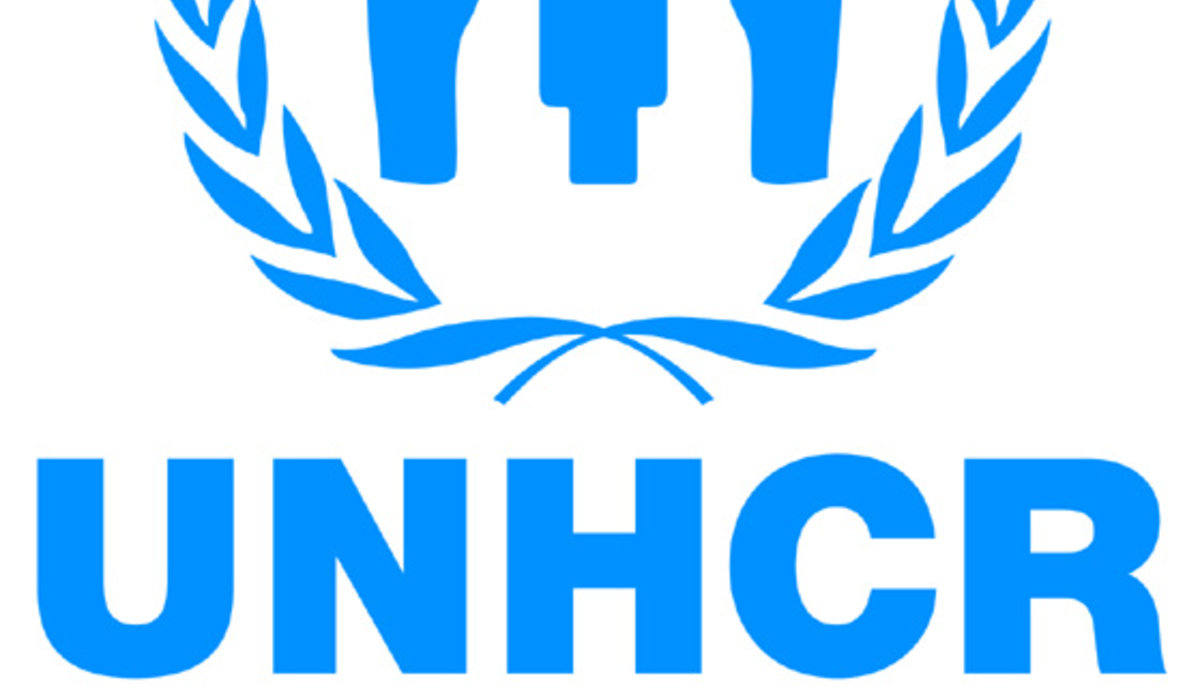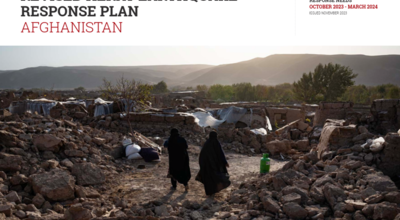MoRR and UNHCR launch aid package to assist Afghans facing harsh winter conditions
KABUL - In Kabul City today, the Afghan Ministry of Refugees and Repatriation, UNHCR and WFP began distributing blankets, charcoal, plastic sheet, Jerry cans, kitchen sets and other winter supplies, as well as food rations, to over 1,200 vulnerable Afghan families as part of a countrywide drive to help 26,000 families survive harsh winter conditions.
The beneficiaries are a mix of vulnerable recently returned refugees and internally displaced people, as well as others at particular risk in the cold winter weather.
The Government leads the overall humanitarian response to extreme winter conditions, guided by a national winter contingency plan. Provincial Disaster Management Committees (PDMC) and humanitarian actors, including UNHCR, are working with the Government and communities to improve distribution not only in the provincial centers, but also in the districts and villages.
Every year, UNHCR, in line with a commitment by the Government of Afghanistan and United Nations to provide emergency winter assistance to vulnerable people, distributes winter relief supplies to remote, inaccessible areas throughout the country. Last winter, because conditions were so bad, UNHCR also provided additional relief assistance to families living in the slums of Kabul City.
As a large number of agencies and organizations are this year offering assistance to the Kabul Informal Settlements, UNHCR is focusing its efforts to help vulnerable returnees and displaced people who live in other parts of the capital. UNHCR nevertheless stands ready once again to help, under OCHA’s coordination, if additional winter assistance is needed in the Kabul’s informal settlements.
Despite everyone’s efforts and support, many people, especially children, are continuing to suffer. While the inhabitants of the Kabul Informal Settlements are known to aid agencies, thousands more returnees and displaced persons are at risk in the capital. It is always the very vulnerable who suffer the most; the very poor, widows, disabled people, elderly, and children. Whilst internally displaced people are more vulnerable because their coping mechanisms have been badly affected by their displacement, the situation in Kabul continues to give cause for concern and highlight a desperate need for urban development that incorporates the needs of IDPs and returnees.
Launched in November, the UN refugee agency’s winter assistance campaign is distributing 5,500 winter packs in the east and south-east; 5,000 packs in the north and north-east; 4,300 packs in the west; 4,000 packs in the south and 7,200 packs in the central and central highlands regions. Coordinated by the National Disaster Management Authority, Ministry of Refugees and Repatriation and implemented through local authorities and non-government partners, the UN World Food Programme supplements UNHCR’s distribution with food packages.
“As always, the different agencies work closely together on this winterization programme under the joint leadership of the Government of Afghanistan and OCHA” explained Ms. Hai Kyung Jun, Acting UNHCR Representative in Afghanistan. “But we are all hoping that the newly endorsed National Policy on Internally Displaced Persons will lead to renewed efforts to find real solutions to these displaced people who suffer all year round, but especially during the cold winter months.”
Minister for Refugees and Repatriation Dr. Jamaher Anwary was with Mr. Mahbobullah Mohibi, deputy Governor of Kabul today in the Kabul Women’s Garden when the UN refugee agency and WFP started their distribution. Dr Anwary said; “These people here today need our help to survive the next few months. But we have not forgotten hundreds of returned refugees and internally displaced people who are also living in atrocious conditions, but in isolated communities that the general public do not even know exist. My Ministry and UNHCR help these people as well.”
Winter distribution also aims to reduce the possibility of rural communities being forced to leave their homes to seek support, and thereby join the ever increasing ranks of internally displaced Afghans. As of December, a total of 624,500 persons are displaced because of conflict in Afghanistan. Among them, more than 117,600 individuals were recorded as newly displaced in 2013, largely in the Southern and Western regions of the country. The majority are living in the south (nearly 184,000 persons), followed by the west (over 164,000) and east (nearly 113,000).
“Emergency assistance responds to immediate needs, but as long as tens of thousands of people live in dire conditions, and as long as the slums continue to exist without any intervention, then the risk of illness and death remains. A serious commitment to solving this problem is essential,” said Hai Kyung Jun.
 UN
UN








